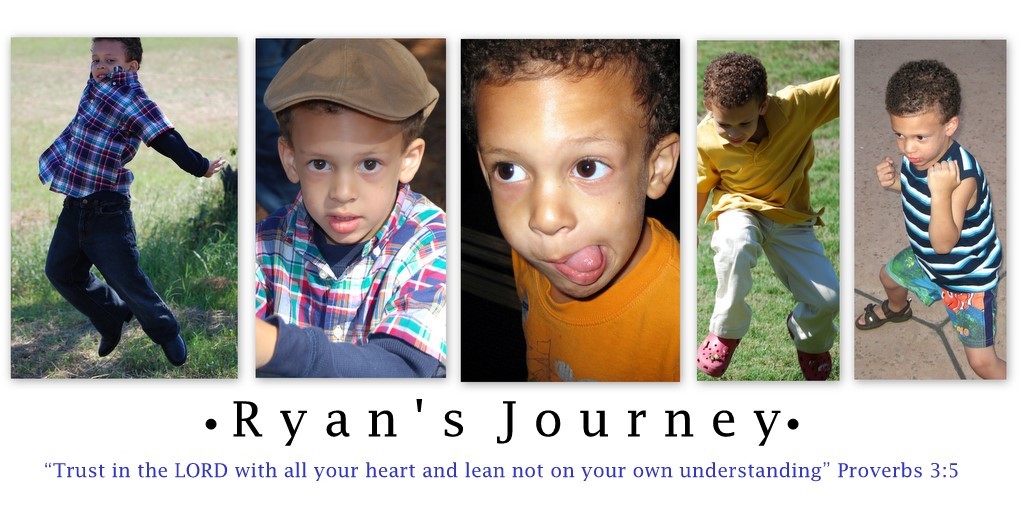"Encourage one another and build each other up ... warn those who are idle, encourage the timid, help the weak, be patient with everyone ... always try to be kind to each other and to everyone else." 1 Thessalonians 5:11, 14, 15
Ryan had a pretty good day today, but he didn't want to eat much. That's a daily battle. In ten years, he will be eating everything in the refrigerator!
The kids were outside when I got home. What a wonderful sight! To see their faces light up just warms my heart.
We ate dinner and then Will and Marielk came over. The kids are always happy to see them and spend time with them. It was a good evening.
Nana sent me the following from her searching on the net. It really sounds familiar with Ryan, so we'll try the suggestions.
Children become accustomed to pain or painful procedures (MYTH)
(TRUTH) Children exposed to repeated painful procedures often experience increasing anxiety and perception of pain with repeated procedures (Zeltzer, 1990).
Anticipatory nausea and vomiting: If a patient has had nausea and vomiting after the previous 3 or 4 chemotherapy treatments, he or she may experience anticipatory nausea and vomiting. The smells, sights, and sounds of the treatment room may remind the patient of previous episodes and may trigger nausea and vomiting before a new cycle of chemotherapy (or radiation therapy) has even begun.
Anticipatory nausea and vomiting occur after the patient has undergone several cancer treatments. It occurs in response to triggers, such as odors in the therapy room. For example, a person who begins chemotherapy and smells an alcohol swab at the same time, may later experience nausea and vomiting at the smell of alcohol alone. Patients usually do not experience nausea and/or vomiting before or during chemotherapy until after they have received several courses of treatment.
For example, the prevalence of ANV prior to any chemotherapy is very rare, and few patients ever experience ANV without prior postchemotherapy nausea.[8] Also, most studies have found a higher probability of ANV with increasing numbers of chemotherapy infusions, and the intensity of ANV increases as patients get closer to the actual time of their infusion.
Here are some suggestions that may help reduce nausea and vomiting if you are getting chemo.
* On the days you get chemo, make sure you have had something to eat. Most people find that a light meal or snack before chemo is best.
* Systematic desensitization
* Distraction from the negative experience with guided imagery or relaxation
* Manipulation of the setting and people associated with chemotherapy administration
* Biofeedback
* Blocking taste sensation with another strong taste (lemon, for example)
Some other suggestions they had was music therapy and progressive muscle relaxation.
We have tried distraction, play therapy, replacing the alcohol rub with something else, and others. However, once his shirt comes off, he immediately starts getting upset. Even if he is playing a game or being read a book, he immediately reacts if anyone gets near his port. Hang in there, Ryan; God will get you through this.
Davianna had another good day at science camp. She is really enjoying her time there, and told me about her different activities today. Emma enjoyed being Emma today. She gets so excited about everything and shares her joy with everyone.
Nothing really exciting today, but that is just fine with me.
Father, thank you for blessing Ryan with a healthy day. Thank you for the little moments with hugs, kisses, and laughter. Those moments are such blessings! I ask that you continue to strengthen his body, comfort his mind, and heal his little body. In Jesus' name I pray. Amen.
Wednesday, June 23, 2010
Subscribe to:
Post Comments (Atom)

0 comments:
Post a Comment